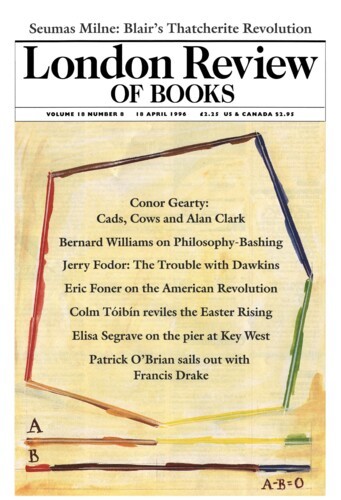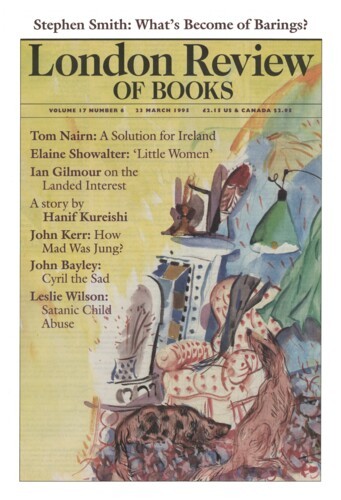Separation Anxiety
Eric Foner, 18 April 1996
The American Revolution is the subject of a rich and complex historical literature. In the 19th century, George Bancroft, the father of American historical writing, portrayed it as the culmination of a long, divinely-inspired progress – the triumph of freedom and democracy on the North American continent. The seed of liberty, planted by the earliest settlers, reached its inevitable flowering in national independence.


